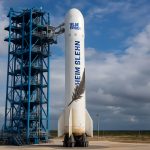EDITOR'S CHOICE
Janitor AI: Disrupting Conversational AI with Unfiltered Engagement and Viral Appeal
Inside Janitor AI’s Unfiltered Chatbot Revolution: How Controversy and Virality Are Redefining Conversational AIExploring the Rapid Rise of Unfiltered Chatbots in the AI MarketKey Innovations Powering Janitor AI and Next-Gen…
Digital Twin Infrastructure Engineering Market 2025: 18% CAGR Driven by Smart City Investments & AI Integration
Digital Twin Infrastructure Engineering Market Report 2025: Unveiling Growth Drivers, Technology Shifts, and Strategic Opportunities. Explore Key Trends, Forecasts, and Regional Insights Shaping the Industry’s Future. Executive Summary & Market…
Remanufactured Electric Motor Systems for Industrial Automation: 2025 Market Surge Driven by Cost Efficiency & Sustainability Trends
2025 Market Report: Remanufactured Electric Motor Systems for Industrial Automation—Growth Drivers, Technology Shifts, and Strategic Insights for the Next 5 Years Executive Summary & Market Overview Key Market Drivers and…
Blue Origin’s New Glenn Rocket Gears Up for Second Launch: Will It Finally Rival SpaceX?
Blue Origin eyes August 15 for New Glenn’s second launch attempt, promising a dramatic booster recovery and renewed rivalry with SpaceX.
Britain’s €385 Million Fusion Gamble: The Mega Bet to Outshine Fossil Fuels
The UK fuels hopes for limitless clean energy with a major stake in laser-powered nuclear fusion. Is this the breakthrough we’ve waited for?
Dell’s AI Power Play: New India Leadership Ushers in Explosive Growth as Stock Soars
With a new CEO in India and bold AI moves, Dell surges past rivals—will these growth drivers lead to a breakout in 2025?
Verizon Holds Firm on Dividend as Rivals Surge—Is VZ Still a Safe Bet for Investors?
Verizon affirms its 67.75¢ dividend as markets surge. Should investors stick or switch? Get the key facts, expert outlook, and smart strategy tips.
Gaze Into the Past: James Webb Space Telescope Reveals 800,000 Galaxies in Record-Shattering Deep Sky Map
JWST’s COSMOS-Web survey stuns scientists with a detailed map of 800,000 ancient galaxies—now open to exploration by anyone worldwide.
Russia’s Mighty Air Fleet Suffers Major Blow: Satellite Photos Reveal Ukraine’s Devastating Drone Assault
Stunning Satellite Images Expose Wreckage After Ukraine’s Daring Drone Strike on Russian Air Bases Satellite photos reveal dramatic destruction of Russian military aircraft as Ukraine executes record-breaking drone attacks in…
Programmable Metamaterials for RF Propagation Market 2025: Surging Demand Drives 28% CAGR Through 2030
2025 Programmable Metamaterials for RF Propagation Market Report: Unveiling Growth Drivers, Technology Shifts, and Global Opportunities. Explore Key Trends, Forecasts, and Strategic Insights for Industry Stakeholders. Executive Summary & Market…



